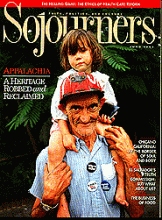A fierce struggle over identity is occurring within the Latino community: over who we are, where we have come from, and where we are going. To be Latino in the United States today means to question one's identity and history. It is a question of being.
Like all other ethnic communities in this country, Latinos are a people with a wide variety of lifestyles and perspectives. Still, transcending this diversity is a common belief in a unity among us; a knowledge that we are bound despite our differences; a shared history and view of the world that have brought us together in this time, in this country.
Different versions of Latino reality are represented by each of the books reviewed here, but our future may rest in none of them. What is important is that at the very least they represent the Latino collective past.
Only a small sampling of the huge resurgence in Latino literature--a second renaissance after the cultural explosion of the late '60s and early '70s--is reflected by these writings. Although these books focus on the Chicano experience in California, the view of reality they offer is one shared by many Latinos: an urban life with roots in the south and a yet uncertain future in the United States.
Victor Villasenor's Rain of Gold takes us back to our roots, creating a masterpiece that could speak for most Chicanos living in the United States today. This history has interesting parallels to the more recent mass immigration of Central Americans to the United States during the last decades.
Rain of Gold traces the path of the author's family from its 19th-century origins in Northern Mexico to the barrios of California during the first half of this century. Fleeing their war-ravaged country during the Mexican Revolution, the Villasenor and Gomez (the name of the author's mother) families went through separate, though equally terrifying, ordeals to reach El Norte.
Read the Full Article

